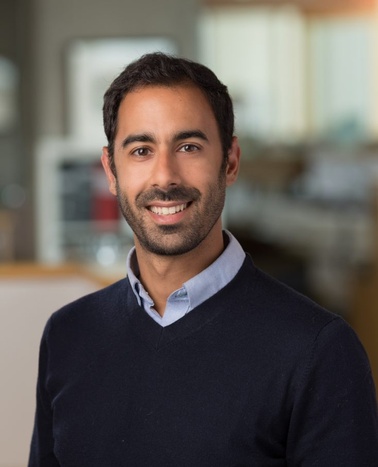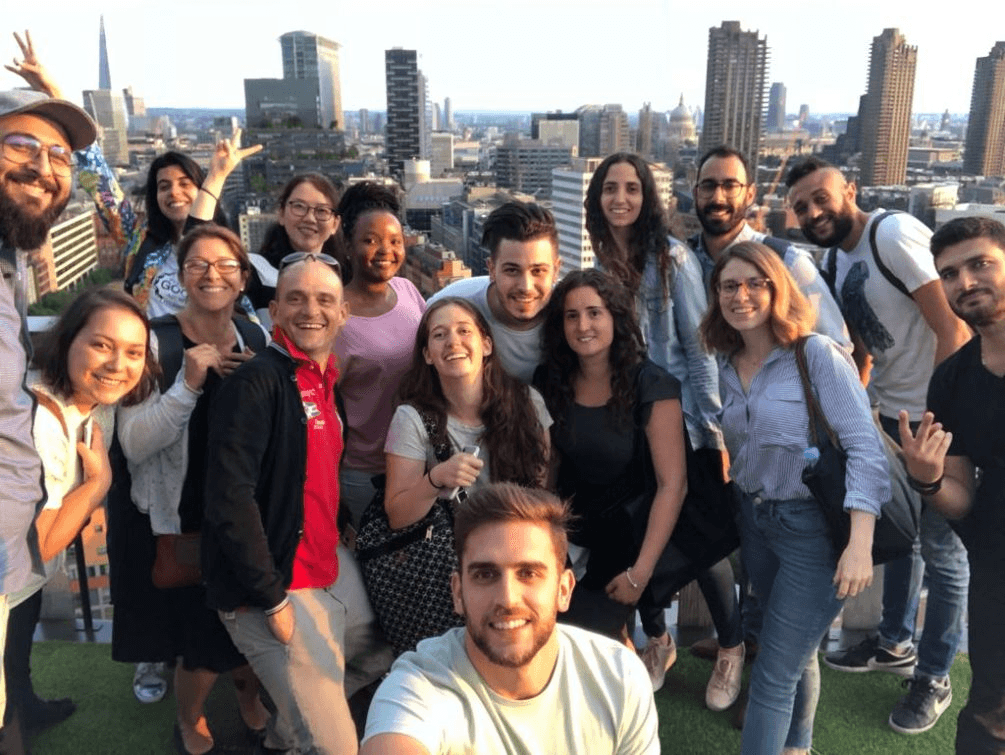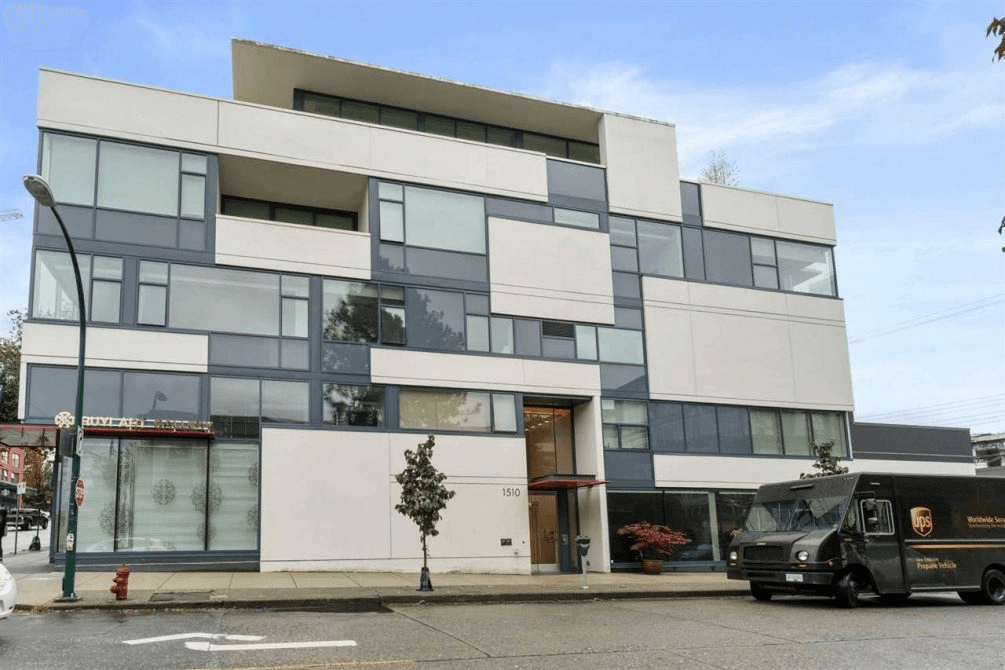
Robert Salvatella Santana
Robert Salvatella Santana, born in Granollers (Spain) in 1982, studied building engineering (2000-2004) and a Master in Architecture (2004-2011) in the ETSAV in Barcelona. He worked at Valtecnic for 6 years while studying as a real estate appraiser assessing land developments for bank lenders. In 2013, he decided to move to Canada to pursue his dream of becoming a design architect. He worked as a designer for 6 years focusing on the design of high-rise buildings. He decided to complete his education in 2019 with the MBArch (2018-2019) at Instituto Empresa (IE) to complement his design studies and explore a more entrepreneurial path.
In 2019, he started working at IBI Group where he is currently a project Manager. Aside from design, he has a deep passion for city making and real estate and started his own blog during the pandemic on Medium called Urbify, where he explores the intersection between architecture, real estate markets, and technology. He also is the proud founder of the Facebook group “Foreign Architects in Vancouver” with the goal to provide a welcoming space for newcomer architects in the city to network and help each other.
"Be bold, engage with your peers, make mistakes, learn, move on, and repeat!"
Q&A WITH ROBERT
Define your experience in the Master in one word.
Eye Opening
What were some of the main challenges that you encountered on your way? How did your master program and IE help you through these challenges?
As an architect, I have always approached architecture as a design issue and tried to get to the right solution when solving problems, this deterministic and binary approach from right and wrong was preventing me from reaching more holistic and creative solutions. The program created a safe environment thanks to the strong relationships you build with your classmates and professors. This allowed me to approach things with a more open mind and allow myself to explore other ways of doing things without the fear of failure. In the master you feel that everyone is fond of each other and support their growth.
How did your experience at IE prepare you for your professional career? In what ways do you think program has changed your life professionally and personally?
The fact that the master has a very wide range of courses, as diverse as, economics, project management, strategic design, marketing, communications, and technology, among others, it allows you to break free from the traditional notion of architects as people who just design. It brings you to new paradigms where you have the ability to think more critically and better understand the constraints besides design that affect the success of a project. For example thanks to all the learnings from the master, during the pandemic I was able to get back to writing and explore design ideas from the point of view of a developer, financial viability of an idea, and also the social impact they can produce.
What was networking like in the program?
During the master you develop strong relationships with the people you share it with, you become very fond of them, and they become friends forever! We call each other from time-to-time to catch up or just to ask for advice from each other. We have even explored design competitions together.
What was your favorite memory from your time at IE?
There are so many to be honest! From a personal perspective, it was the three-week period we experienced as a group in London, we were exposed to many different architecture and design firms and at the same time we got to know each other in a more relaxed way. From a professional point, the presentations of the venture lab. Listening and seeing how diverse everyone’s ideas were, see how much everyone grew and how passionate and confident everyone was, it was a true testimony of how the master changes you for the better!
If someone was considering going to IE, what would you tell them?
I would tell them that it is a great experience and advise them to approach it with an open mind because each person gets something different from the master. Be open and enjoy the journey!
Why did you choose to study this program at IE?
IE is one of the most prestigious universities in the world for MBA programs, this gave me confidence that the program would deliver great knowledge in all the economic and project managements skills that we as architects and designers lack in our traditional learning experience.
What is one thing you wished you knew, when you were a student? What advice would you give to students who are about to begin the program?
You will get from the master what you put in. Teachers are very approachable, and your classmates are there to support each other, the more you immerse yourself in the experience the more you will grow. Also approach things with an open mind and as a fun exploration, the time you spend in school is the time where you can allow yourself to test things and have fun without any negative consequences, be bold and take risks.
Tell us about the IE alumni community and the impact they have had in your life and/or career. Why do you think it’s important to engage with the IE alumni community?
One thing that has surprised me after finishing the master is how big and welcoming the IE family around the world is. Upon finishing the master and returning to Canada, I was introduced to the WhatsApp group from the IE Vancouver Alumni and the IE A&D North America. We have been able to have some face-to-face meetings with some alumni and Zoom calls to network with each other. People share ideas and opportunities when they are looking for talented peers and that makes you feel part of something bigger and know that you have a community of professionals that are always there for you.
Can you tell us what a day as a Project Manager looks like?
It’s funny because I was discussing this with my mentor the other day. Transitioning from an Architectural Designer role to a Project Manager role as been one of the most challenging experiences in my career. The skillset that you need to succeed is totally different from the experience that you have accumulated as a designer. As a project manager your goal is to provide the tools and guidance to your team to deliver a great project, at the same time you manage are managing the client side by providing a path on how to achieve their desired outcomes in realistic timeline, while anticipating what will be required at each step of the process.
You also have to make sure you are allocating the right resources and time to each phase of the project and monitor the costs to stay within budget. This role requires you to put yourself in the shoes of the other people to understand what they need in order to collectively complete the project. It’s a very rewarding experience because you get to collaborate and learn from many people at the same time.
What has been your favorite moment of your career so far?
I think my favorite moment in my career so far is when I saw the first completed building I worked on. When I moved to Canada 8 years ago, I had no previous experience as a designer and at the beginning it was tough and full of challenges. I got a job in a small architecture firm with a very talented architect who trusted in me. During my time there, I worked on the design of a boutique building in Granville Street in Vancouver, every time I go by and see it built, I feel proud and it fills me with energy to achieve more things in my professional career.
What’s a valuable lesson you have learned throughout your career?
Great projects are built by teams, not people. To succeed in architecture, you have to build relationships based on trust and commitment. The architects name is all that we see when projects win competitions, but the reality is that the amount of people that work on each project and contribute to it, is much bigger than what we see. Developers, consultants, general public, etc., provide feedback and suggestions that can make the project much richer and more inclusive. Listening to everyone and to make room for people to speak out during the process brings points and perspectives to the table that otherwise might have been missed.
Are there any daily habits that you attribute to your success that you’d like to share, especially now with COVID-19?
Exercise daily! During this pandemic I have been trying to go out for a run at lunch as much as possible rain or shine. It has been a very stressful year and at some points we all have been hit by loneliness and stress. Stress is something that builds up and manifests in many different ways for each person.
Tying the running shoes and running to the beat of your favourite playlist is a great way to lower stress levels and help cope with it. At some periods during the pandemic, I was too tangled with work and slipped on my running commitment. After one week of skipping the routine I could clearly see it affecting my sleep and energy levels. You can’t do great work if you don’t treat yourself well, mind and body work as one!
What’s the best career advice you have ever been given?
Surround yourself with people smarter than you, if you are the smartest person in the room you won’t grow, move to the next room.
If you had a billboard you could display to the entire world, what would you put on it?
Don’t take life too seriously
When we take life too seriously, we tend to have a narrow vision of things because we tend to judge things from a single sided perspective. When we don’t take life too seriously, we are open to other perspectives and also allow ourselves to make mistakes and learn from them.

